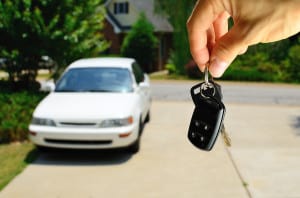 It’s no secret that ignition interlock devices make life a little more complicated. When a driver has been convicted of driving under the influence (DUI), driving privileges may be restricted in such a way that the individual is court-ordered to install an ignition interlock device on all vehicles owned or operated by the offender. This makes borrowing or renting vehicles virtually impossible without asking for more legal action to be taken against the individual. But, what are the ignition interlock restrictions and how does one navigate them?
It’s no secret that ignition interlock devices make life a little more complicated. When a driver has been convicted of driving under the influence (DUI), driving privileges may be restricted in such a way that the individual is court-ordered to install an ignition interlock device on all vehicles owned or operated by the offender. This makes borrowing or renting vehicles virtually impossible without asking for more legal action to be taken against the individual. But, what are the ignition interlock restrictions and how does one navigate them?
Ignition interlock devices are small, mobile phone-sized attachments that render a vehicle inoperable should the driver fail a breath alcohol test. These devices help lower the potential for drunk driving among individuals who have been previously convicted for the offense. When a driver has an ignition interlock restriction, the individual is not allowed to operate any vehicles without an ignition interlock device installed. This means that the driver cannot rent or borrow vehicles for the duration of the restriction. When it comes to vehicle ownership and ignition interlock devices, laws are very clear. All vehicles owned, registered, and/or regularly operated must have the device installed or the driver is in direct violation of a court order. These laws can be even more strict when it is determined the convicted offender has attempted to circumvent an ignition interlock device or requirement.
In some states, if an ignition interlock restricted driver is caught driving a vehicle without the device, the person who loaned or rented the vehicle is charged with a misdemeanor. All states consider it a crime for the restricted driver to violate the restriction, but some also consider it a crime to loan or rent a vehicle to the restricted driver. This may result in the non-restricted individual losing the vehicle in question or losing driving privileges, as well as fines and jail time. States take the issue of vehicle ownership and ignition interlock devices seriously.
Some states give special exceptions to drivers ordered to install ignition interlock devices. These exceptions generally pertain to offenders who drive company-owned vehicles on their job and offenders who own multiple vehicles. What the exceptions are, how they are applied, and who may receive them is left to the courts to decide. When exceptions are allowed, other stipulations are usually put in place, such as having the driver carry a notice stating the individual is ignition interlock restricted. Such a stipulation is usually for the operation of company-owned vehicles. This exception does not pertain to car rentals and some states expressly forbid courts to allow the exception for work vehicles.
While being able to drive with an ignition interlock restriction is a privilege, it is not without its limitations. There are states that require every vehicle owned by a DUI offender to be equipped with an ignition interlock device, regardless of cost or hardship. The navigation of the system with regard to vehicle ownership and ignition interlock devices can be stressful and is completely avoidable. Never get behind the wheel of a motor vehicle after drinking and chances are you may never have to worry about any of this.

Leave a Reply
You must be logged in to post a comment.